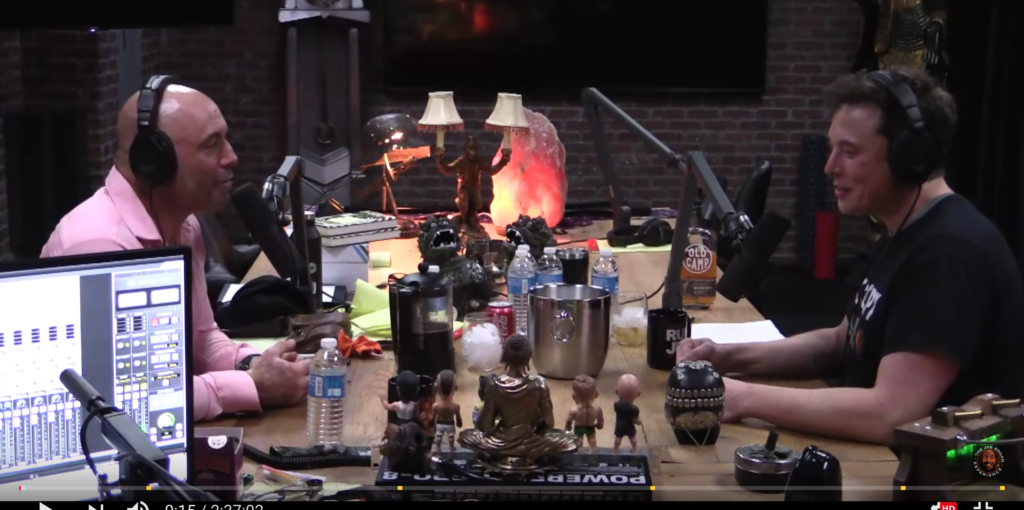In the wake of Elon Musk’s appearance on the Joe Rogan Experience podcast last week — during which the self-described “business magnet” took a small puff of a spliff containing tobacco and marijuana that Rogan had lit and passed to him — social media slid into a frenzy, and shares of Tesla (Nasdaq: TSLA) slipped more than 8% overnight.
More and more people are calling for a change in leadership at the electric car and alternative energy company, which has faced a number of controversies throughout 2018. Musk himself has been the primary conduit of Tesla’s negative attention.
In addition to his on-screen puff of marijuana (which is legal for recreational use in the state of California, where the show is recorded), last week saw the resignations of Telsa’s head of accounting and its top HR staffer. This is on top of production delays at the Gigafactory, an ongoing investigation by the SEC after Musk tweeted that Tesla would go private, and head-scratching personal feuds that Musk has prolonged.
On the Rogan podcast, which already has 10 million viewers in less than a week, Musk admitted to having become more ‘fatalistic’. His explanation for adopting this attitude should give everyone pause.
“We will represent a small percentage of intelligence.” -Elon Musk
Remarkably, Musk taking a puff of a spliff was not among the compelling moment of his conversation with Joe Rogan. Instead were Musk’s insights about artificial intelligence, as well as his accounts of his unsuccessful attempts at warning politicians about the importance of regulating AI.
He argued that AI is already pervasive, describing social media sites like Facebook and Instagram as “cybernetic collectives” with everything we post being an extension of our own limbic system, associated with our most primal instincts like hunger and procreation. He described how the ‘cortex’ component of the human brain — responsible for logic and practical reasoning — is at the service of the limbic system and that AI will soon (if it doesn’t already) represent a third layer, before it’s completely inseparable from the cortex.
Musk believes with conviction that AI will inevitably be uncontrollable by humans. On some level, it seems as though he thinks we’re already there: “I tried for years to get people to regulate AI,” he said. “Nobody listened.”
He referred to his meeting just over a year ago with U.S. governors discussing the “existential threat” that AI poses. He also mentioned a meeting with President Barack Obama on the same topic, lamenting that there still exists no mechanism to regulate AI. When Rogan suggested that AI legislation could still come, Musk was resigned and pessimistic. Whether this was a display of Musk’s flair for showmanship or an authentic sentiment is hard to say.
Nonetheless, he mused on an inevitable future in which humans will have the ability to give themselves infinite intelligence, if they choose; and that our human intelligence would account for “a small percentage” of all intelligence that existed.
“It could be terrible… and it could be great.”
Rogan and Musk covered a lot of ground, from the “calculated cruelty” of chimpanzees to ballet-dancing Teslas (a standard feature). Rogan seemed starstruck at times, as Musk took him out of his technical comfort zone on occasion, for example describing the thrust mechanism (“simple,” according to Musk) behind an airplane he designed.
But Musk’s severity of tone when discussing AI remained the most poignant moment in the conversation. Rogan seemed unsure — like the rest of us — of whether to be amused by what some may see as signature Elon Musk showmanship or legitimately concerned about what the implications of the AI future Musk described, if accurate, would be.
Whatever the case may be, perhaps it’s most prudent to start thinking critically about these issues before our reality is one where human intelligence is in the minority, when we are at the mercy of an intelligence far more powerful than ours.

